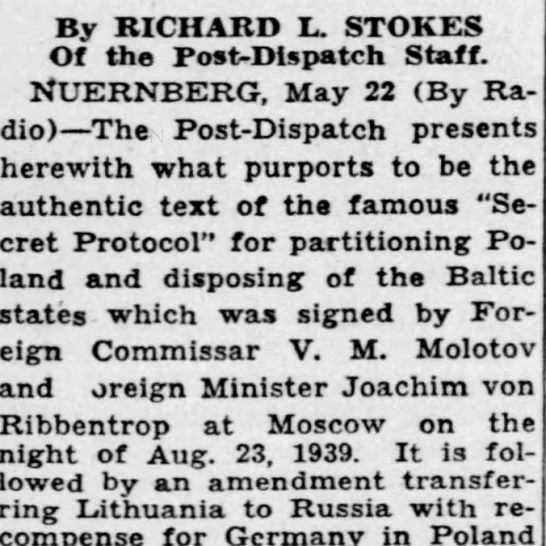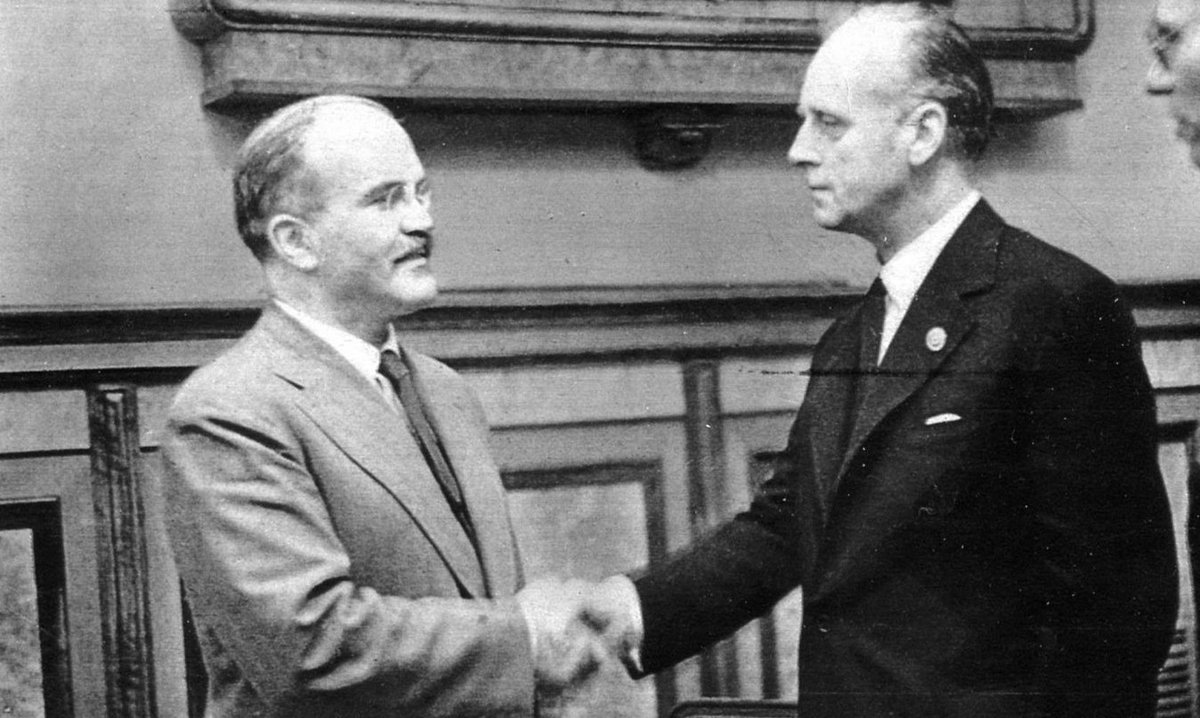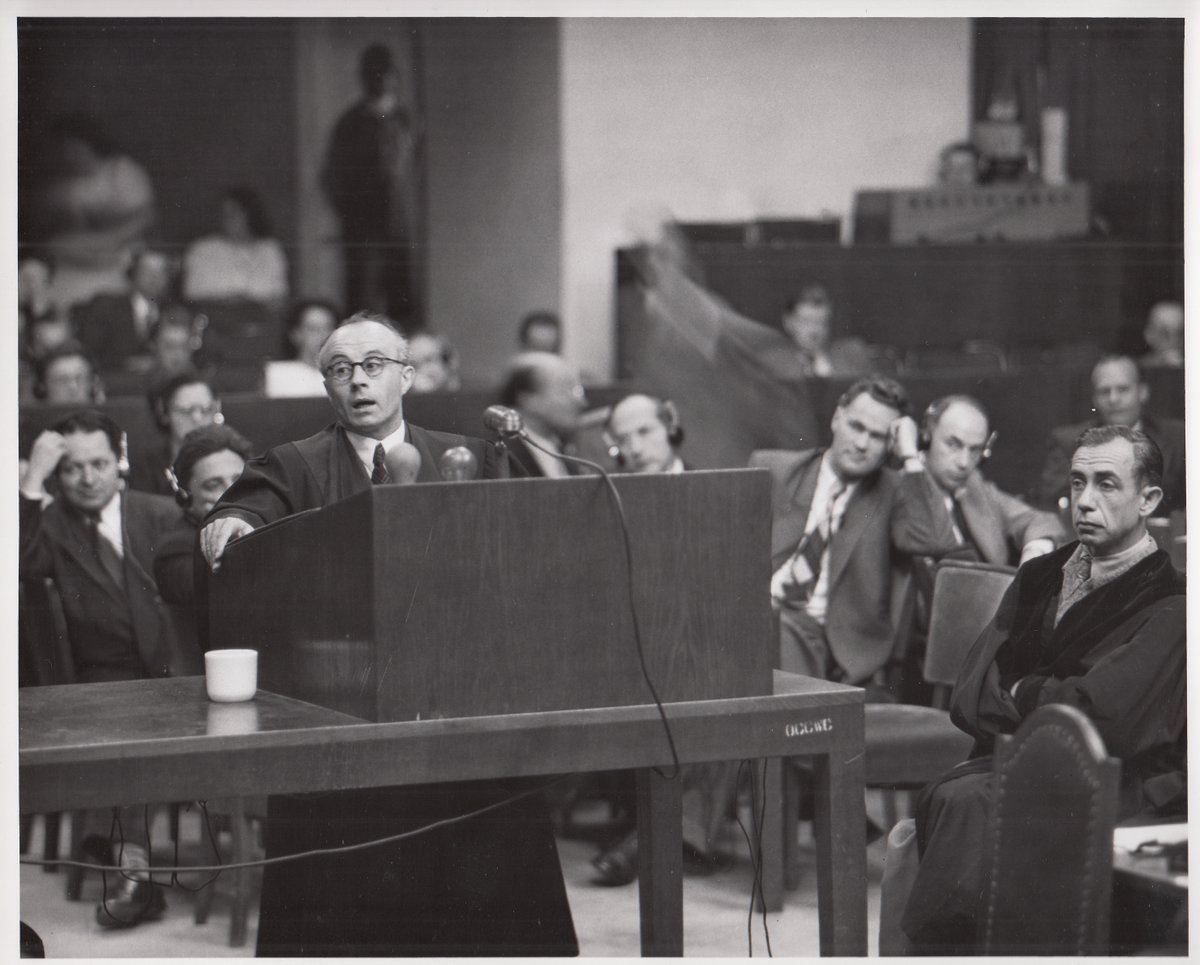
On May 22, 1946 the St. Louis Post-Dispatch published a full transcript of the secret protocols to the Soviet-German Non-Aggression Pact (Molotov-Ribbentrop Pact) of 1939, accompanied by an article by the paper’s #Nuremberg correspondent Richard L. Stokes. 

Stokes explained that this “purports to be the authentic text of the famous ‘Secret Protocol’ for partitioning Poland and disposing of the Baltic states which was signed by Foreign Commissar V. M. Molotov and Foreign Minister Joachim von Ribbentrop at Moscow on... Aug. 23, 1939.”
Stokes further noted: “It is followed by an amendment transferring Lithuania to Russia with recompense for Germany in Poland which the same statesmen executed at Moscow on Sept. 28, 1939.”
Image of Molotov and Ribbentrop at the September 1939 meeting.
Image of Molotov and Ribbentrop at the September 1939 meeting.

How had the text of the secret protocols made its way to an American newspaper? In the article Stokes casually revealed his source: a member of the American prosecution team at #Nuremberg, assistant prosecutor Thomas Dodd.
According to Stokes, Dodd had obtained a copy of the German-language text from Alfred Seidl (defense attorney for Hans Frank and Rudolf Hess) and had arranged for its translation into English.
There is an interesting backstory here: The secret protocols had become a hot topic in the #Nuremberg courtroom during the defense case. Ribbentrop and several defense witnesses had described the contents in detail in an effort to implicate the Soviets in crimes against peace.
Alfred Seidl had been trying for weeks to introduce a copy of the secret protocols to the Tribunal as evidence for the defense—to no avail. 

The judges had refused to accept Seidl’s purported copy of the secret protocols because of unanswered questions about the document’s origins. Seidl would say only that a U.S. Army serviceman had surreptitiously passed it on to him.
The publication of the secret protocols in an American newspaper was a huge blow to the Soviets. It's hard to know what the key members of the Soviet delegation in #Nuremberg could have done to make things turn out differently. But they had every reason to fear Stalin’s wrath.
Questions remain about Thomas Dodd’s role as a middleman between defense attorney Alfred Seidl and journalist Richard L. Stokes.
We do know that Thomas Dodd privately expressed moral outrage toward the Soviets, describing them in one letter home (on March 6, 1946) as “no different from the Nazis—the same breed of cat.”
Dodd's Letters from Nuremberg, published in 2007, are an interesting read. Dodd wrote in another letter home (on April 1, 1946 after attending a dinner party with Soviet judge Iona Nikitchenko and others) that many of the Russians "as individuals" were "really very likeable."
• • •
Missing some Tweet in this thread? You can try to
force a refresh






